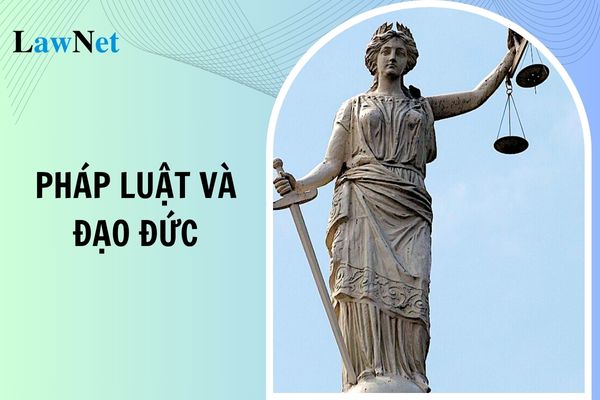Vietnam: What is the meaning of the saying "Law is minimum morality while morality is maximum law"? How many modes of study are there in undergraduate education?
What is the meaning of the saying "Law is minimum morality while morality is maximum law"?
The saying "Law is minimum morality while morality is maximum law" reflects the relationship between two important concepts in society: the relationship between law and morality.
Law is a system of general behavioral rules issued by the state to regulate human behavior in society. Law is constructed based on fundamental moral standards and is mandatory. Everyone in society must comply with the law, and violations will be handled according to legal provisions.
Morality is a system of values, principles, and standards that individuals voluntarily adhere to in daily life. Morality is not as mandatory as law, but it plays a crucial role in shaping one's personality and lifestyle.
The law is considered minimum morality because it defines the most fundamental moral standards that everyone must adhere to; in other words, morality is the spiritual foundation for implementing legal regulations. Legal provisions often include principles of fairness, honesty, responsibility, and respect for others' rights. For example, the law prohibits acts such as theft, murder, and fraud, which are morally wrong and harmful to society.
Law not only protects individual rights but also maintains social order and stability. It sets specific limits to prevent acts that infringe on others' rights. In this way, the law ensures that everyone is treated fairly and protected within society.
Morality is considered maximum law because it not only encompasses the minimum rules set by law but also extends further to include humanitarian values, compassion, honesty, and responsibility towards the community. Morality not only requires people not to violate the law but also encourages them to act according to higher values.
While the law mainly regulates external behavior, morality regulates both behavior and the soul of a person. A moral person not only complies with the law but also acts voluntarily for the common good, assists others, and builds a better society. Morality guides people towards noble actions, not out of fear of punishment, but out of love and responsibility.
In summary, the saying "Law is minimum morality while morality is maximum law" is an expression of the relationship between law and morality, demonstrating the necessary balance in regulating human behavior. Law ensures order and fairness, while morality elevates human values and solidarity in society. An ideal society is one where people not only comply with the law but also live according to high moral standards.
Note: the above meaning of the saying "Law is minimum morality while morality is maximum law" is for reference only!

What is the meaning of the saying "Law is minimum morality while morality is maximum law"? In Vietnam, how many modes of study are there in undergraduate education? (Image from Internet)
In Vietnam, how many modes of study are there in undergraduate education?
According to Article 4 of the regulation on undergraduate education issued with Circular 08/2021/TT-BGDDT, the regulation is as follows:
Modes of study
1. Full-time mode of study:
a) Teaching activities shall take place in training institutions, and practicals, internships, practical experiences and online teaching may be carried out outside of training institutions;
b) Teaching activities shall take place between 6 AM and 8 PM from Monday to Saturday; activities specific to training programs shall be organized according to regulations of training institutions.
2. Part-time mode of study:
a) Teaching activities shall take place in training institutions or institutions involved in joint training according to regulations on joint training in Article 5 of this Regulation; and practicals, internships, practical experiences and online teaching may be carried out outside of training institutions and institutions involved in joint training;
b) Teaching time may be scheduled flexibly.
3. For academic disciplines needing to be prioritized for socio - economic development for each period, the Ministry of Education and Training shall provide guidelines for the modes of study applied to them.
Thus, there are two modes of study in undergraduate education, including full-time mode of study and part-time mode of study.
Additionally, for academic disciplines needing to be prioritized for socio - economic development for each period, the Ministry of Education and Training shall provide guidelines for the modes of study applied to them.
In Vietnam, what are the requirements for online teaching and learning in undergraduate education?
According to Clause 2, Article 8 of the regulation on undergraduate education issued with Circular 08/2021/TT-BGDDT, the requirements for online teaching and learning in undergraduate education in Vietnam are as follows:
- Training institutions may organize online classes when they meet existing requirements for application of information technology in online training management and organization; have quality assurance solutions and have proof that quality of online classes is no lower than that of physical classes;
- No more than 30% of the total academic load of a full-time or part-time training program may be taught via online classes. In case of natural disasters, complicated epidemics and other force majeure events, training institutions shall follow guidelines from the Ministry of Education and Training.

